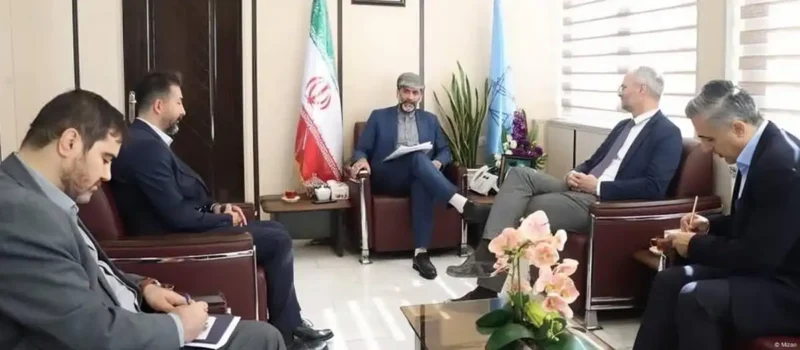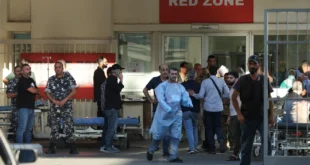Iran Releases Austrian Citizen After Lengthy Detention

In a significant diplomatic development, Iran has released an Austrian citizen who had been detained in the country for an extended period. The release comes amid ongoing efforts to ease tensions between Tehran and Western nations, particularly in the wake of strained relations over nuclear negotiations, human rights concerns, and geopolitical conflicts. The Austrian national’s release is seen as part of a broader diplomatic strategy aimed at improving ties and potentially negotiating the release of other foreign nationals held in Iran.
Background on the Detention
The Austrian citizen, whose name has not been officially disclosed for privacy reasons, was arrested in Iran on charges that remain unclear but are suspected to be politically motivated. Iran has a history of detaining foreign nationals, particularly dual citizens, on accusations of espionage, collaboration with hostile governments, or participation in anti-government activities. Many observers believe these detentions are often used as leverage in Iran’s complex foreign policy dealings with the West.
Reports suggest that the Austrian national may have been detained while traveling in Iran for personal or professional reasons. While the precise nature of the allegations against the individual remains undisclosed, many foreign detainees in Iran have been charged with espionage or acting against state security, often without clear evidence or due process.
The arrest of the Austrian national is part of a larger pattern of detentions of foreign citizens in Iran, which has caused considerable concern among international human rights organizations and governments. Austria, along with other European countries, has been actively engaged in securing the release of its citizens, viewing these detentions as unlawful and unjust.
Diplomatic Efforts for Release
The release of the Austrian citizen follows months of intensive diplomatic negotiations between Austria and Iran. Austrian diplomats, working in concert with other European Union representatives, have been quietly advocating for the release of the detained individual through back-channel diplomacy and official communications. Austrian officials have maintained a relatively low-profile approach to the case, avoiding public confrontations that might jeopardize delicate negotiations.
Iran has, in recent years, been willing to engage in prisoner swaps or release detainees in exchange for concessions from foreign governments. In many cases, these agreements are not publicly disclosed until after they are finalized, as they often involve complex geopolitical calculations. Austria’s diplomatic strategy appears to have focused on behind-the-scenes talks aimed at securing the release without escalating tensions further.
Although Iran has not officially provided a reason for the release, some analysts believe it may be related to ongoing efforts to de-escalate tensions with European nations amid Iran’s growing isolation on the world stage. The release could also be a gesture to improve Iran’s diplomatic standing with Austria and the broader European community, which has been critical of Iran’s human rights record and nuclear program.
Broader Context of Foreign Detentions in Iran
The detention of foreign nationals in Iran has long been a point of contention between the Islamic Republic and the international community. Iran’s judicial system has faced widespread criticism for its handling of cases involving foreign citizens, with allegations of arbitrary arrests, lack of transparency, and violations of due process.
Over the past decade, several Western countries, including the United States, the United Kingdom, and several European Union member states, have had citizens detained in Iran on charges that many consider politically motivated. These detentions are often used as bargaining chips in negotiations over various political and economic issues, including sanctions relief, nuclear agreements, and military concerns in the Middle East.
Iran’s detention of foreign nationals has drawn harsh criticism from human rights organizations like Amnesty International and Human Rights Watch, which have called for greater transparency in Iran’s judicial processes and the immediate release of those detained without fair trials.
Several high-profile cases involving dual nationals or foreign citizens have resulted in years of imprisonment under harsh conditions, prompting diplomatic stand-offs between Iran and Western nations. These detentions are often seen as a way for Iran to exert pressure on foreign governments while maintaining a stance of defiance against perceived Western interference in its domestic and international affairs.
Implications for Austria-Iran Relations
The release of the Austrian citizen could mark a turning point in the relationship between Austria and Iran, which has been strained in recent years over Iran’s nuclear activities and human rights issues. Austria, as a neutral country within the European Union, has historically played a mediating role in international diplomacy, particularly in negotiations surrounding Iran’s nuclear program. Vienna has hosted several rounds of talks aimed at reviving the Joint Comprehensive Plan of Action (JCPOA), commonly known as the Iran nuclear deal.
Austria’s engagement in these talks, along with its diplomatic outreach, may have helped facilitate the release of its citizen. The move could signal a willingness on the part of Iran to engage in more constructive dialogue with European nations, particularly at a time when Tehran is seeking relief from crippling economic sanctions imposed by the United States and other Western powers.
However, while the release is a positive step, it is unlikely to fully resolve the broader issues at play between Iran and the West. Austria, like other EU members, remains concerned about Iran’s human rights record, its regional influence, and its nuclear ambitions. The release of the Austrian citizen may open the door to further dialogue, but it does not eliminate the fundamental disagreements between the two countries.
Calls for the Release of Other Detainees
The release of the Austrian citizen has renewed calls for the freedom of other foreign nationals who remain detained in Iran. Several countries, including the U.S., the U.K., and France, have ongoing cases involving citizens who are held on dubious charges, often accused of espionage or anti-government activities.
Advocates for the release of these detainees argue that Iran’s actions violate international human rights standards and the basic principles of justice. The use of foreign nationals as political pawns is widely condemned, and there is increasing pressure on the Iranian government to release those held without fair trials.
Iran’s willingness to release detainees is often tied to broader geopolitical calculations, including negotiations over sanctions and diplomatic relations. As such, the fate of other foreign detainees remains uncertain, but international pressure continues to mount for their release.
Conclusion
The release of the Austrian citizen from Iranian custody is a significant diplomatic victory for Austria and a potential sign of Iran’s readiness to engage in more cooperative international relations. However, the broader issue of foreign detentions in Iran remains unresolved, and many other foreign nationals continue to be held. As international efforts to address these detentions continue, the release is a reminder of the complex interplay between diplomacy, human rights, and international relations in today’s geopolitical landscape.


